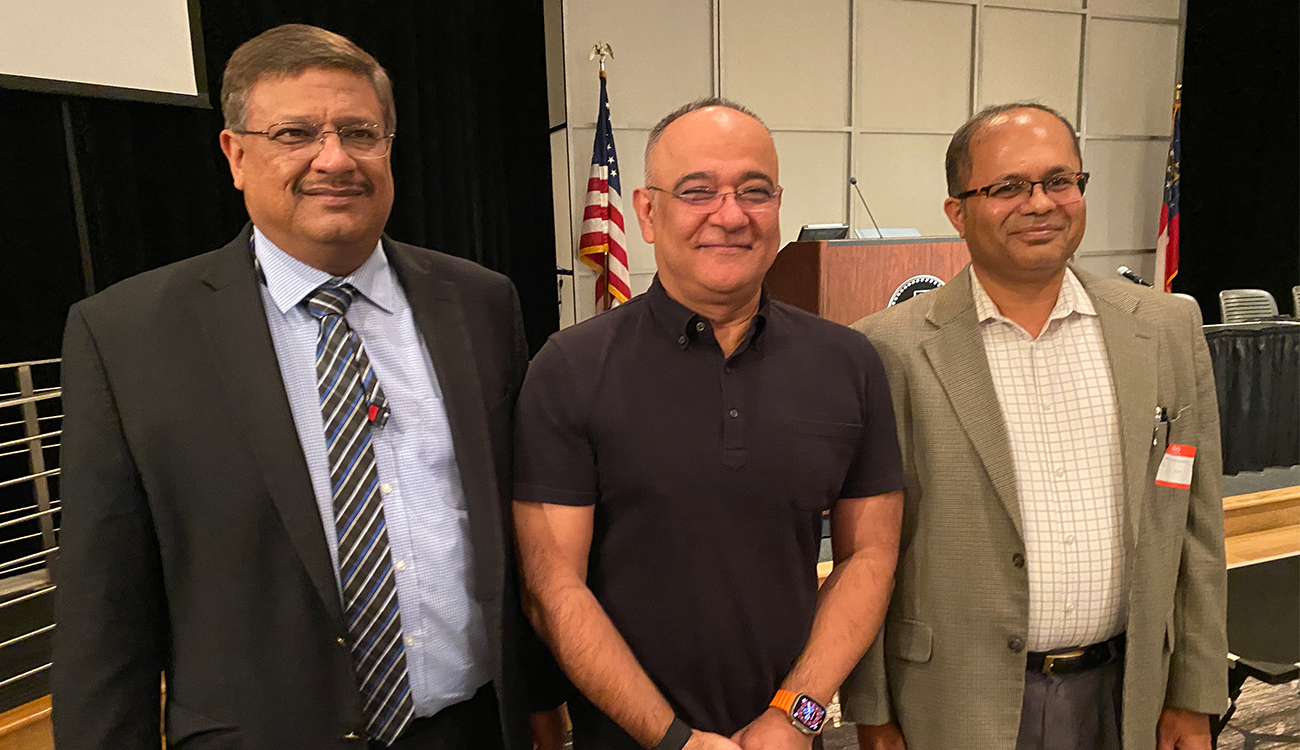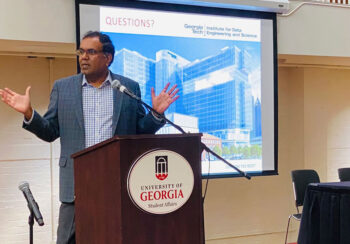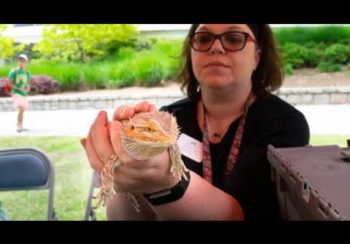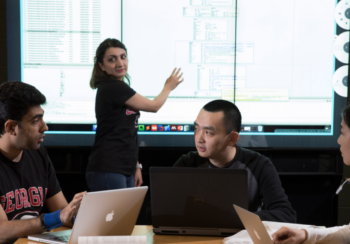Led by a new director and with a year of momentum behind it, the University of Georgia School of Computing (SOC) held its second annual SOC Research Day on Nov. 17 to celebrate the rapidly growing prominence of computing research across the university.
Held in the Georgia Center for Continuing Education, the event pulled together SOC faculty and students, as well as distinguished outside guests, to talk about the importance of computing research and technology in today’s world, showcase their own work in an afternoon poster session and enjoy some fun competition through a trivia contest.
In 2022 UGA elevated the longstanding Department of Computer Science to a school that jointly reports to the Franklin College of Arts & Sciences and College of Engineering. Since then, the SOC has quickly established itself as both a resource and driver for computing and computing-assisted research on campus. Earlier this year, the school welcomed its first director, Gagan Agrawal, following a national search.
SOC’s second Research Day adopted artificial intelligence (AI) as its theme. Irfan Essa, Distinguished Professor and senior associate dean in the Georgia Tech College of Computing, delivered the keynote address, titled “Generative AI and Responsible AI.” Essa has spent his career working in various AI applications, such as computer vision and computational photography. He was part of the team that developed a video-stabilization algorithm made available on YouTube to improve videos uploaded to the site.
In his talk, he traced the history of AI, starting with the famous “Turing Test” proposed in 1950 by computing pioneer Alan Turing and leading all the way to ChatGPT. Turing’s original description of his test, which he called the “imitation game,” involved three players, including one interrogator. The test is whether the interrogator, by simply asking questions of the other two (unseen) players, can determine which is real and which is artificial.
“Nowadays we can beat the Turing Test,” Essa said. “We can build systems that can make you believe they are intelligent. But is that really the bar we want to clear?”
Essa talked in detail about the evolution of AI-assisted features on Google’s Pixel phone. He also demonstrated AI-powered systems that can generate images and even video from simple text commands.
“The School of Computing is the intellectual home of the core artificial intelligence efforts, and with AI taking center-stage not just in the academic research enterprise but in our everyday lives, it was very appropriate that the invited speaker and the panel we chose were centered on AI,” Agrawal said. “Not surprisingly, it drew large interest across the campus. We are very pleased that we could share our graduate students’ excellent ongoing research with the broader university community.”
Essa’s talk was followed by a trivia contest, testing attendees’ knowledge of major computing developments and awards. Later the event featured a panel discussion on “The Role of AI in Higher Education,” moderated by SOC Associate Professor Shannon Quinn and featuring Essa; UGA Institute for Artificial Intelligence Director and SOC Professor Khaled Rasheed; SOC Assistant Professor Ari Schlesinger; AI institute Lecturer Kimberly Van Orman; and Mary Frances Early College of Education Associate Professor Denis Dumas.
“It was fascinating to see the great work reflected in the posters and to begin to get a sense of the range and breadth and depth of creative inquiry that’s going,” said Franklin College Dean Anna Stenport. “Computing at UGA is different, in that we have a prominent school embedded in a liberal arts college, in which you are pushing the boundaries of challenging research. We’re bringing the best thinkers in the liberal arts together with experts from across the computing field. The School of Computing has broad horizons and a bright future.”
“The School of Computing Research Day demonstrates how advances in computing and computer science impact developments in other fields,” said College of Engineering Dean Don Leo. “It is exciting to see such an interdisciplinary group of researchers and scholars at the meeting.”






